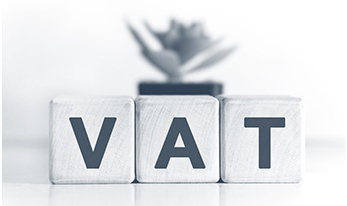Private schools are going to need lessons in VAT

The Government's decision to introduce VAT on private school fees is set to have a significant impact on the sector. Starting from 1st January 2025, these fees will be subject to a 20% VAT rate. The tax will be applied to fees for tuition and also for boarding. There are many steps that schools need to take to prepare for the changes, especially if they have never had to deal with VAT before.
What are the implications?
The introduction of VAT on private school fees is a major shift in policy with significant implications. Most notably it will increase the cost of education for parents who choose to have their children privately educated.
The ramifications for the educational establishments concerned will be substantial. Schools will need to make changes to their administration and compliance systems and processes, especially if they have not had to deal with VAT before. Schools will also need to adapt their budgeting arrangements and financial planning. However, there will also be some benefits to this change in tax status. When schools become registered for VAT they will be able to make reclaims against expenditure on taxable supplies and on capital projects, such as construction works.
What do schools need to do to prepare?
It is essential to conduct a thorough Financial Impact Assessment to analyse what consequences the application of the tax will have on schools income. Will fees need to be increased by 20% and what will the impact of that be on enrolment?
If it is not considered feasible to increase fees to that extent straight away then savings may need to be made in other areas.
If the school is not already registered for VAT then it will need to do so. A new process for doing this will be clarified by HMRC in due course.
It will then be necessary to ensure compliance with the VAT regime. IT systems, invoicing procedures and record keeping will all need to be brought up to date and responsible staff will need to be trained on the administration of VAT.
A clear communication strategy will be crucial, especially when dealing with parents. It is important that they know about imminent fee increases well in advance and that appropriate staff are trained to answer any questions they may have.
Schools will need to review existing contracts and written agreements with customers and suppliers to ensure that all aspects of the application of VAT are referenced where necessary.
By proactively addressing the areas above, private schools can mitigate the challenges presented by the introduction of VAT on fees and ensure a smooth transition before January 2025.
How can we help?
The complexities of VAT regulations make it very difficult for schools that have not had to address such matters before, so it is important to seek expert guidance. UK Training has just announced a brand new course: VAT for Private Schools.
This practical and comprehensive six-hour course is essential for anyone involved with tax compliance in private schools or accountants providing services or advice to them. It will guide you through everything you need to know about the VAT system, ahead of January 2025 and will help you to prepare your organisation for these important changes. Crucially, it will explain how to take advantage of the opportunities to recover VAT for the first time on expenditure on taxable supplies and capital projects.
Written by Paul Murphy
Connect with me on Linkedin here
Follow UK Training on Linkedin here


